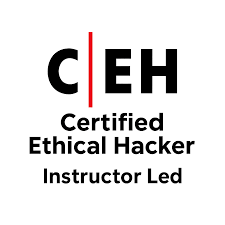Palo Alto Training – Learn Palo Alto Firewalls in 2025

Introduction: In a world where cyberattacks and digital fraud are on the rise, businesses must invest in robust solutions to protect their data and systems. The CHFI (Certified Hacking Forensic Investigator) certification, offered by EC-Council, is a key response to effectively combat fraud by combining technical expertise with legal rigor. This article explores how CHFI […]

Introduction:
In a world where cyberattacks and digital fraud are on the rise, businesses must invest in robust solutions to protect their data and systems. The CHFI (Certified Hacking Forensic Investigator) certification, offered by EC-Council, is a key response to effectively combat fraud by combining technical expertise with legal rigor. This article explores how CHFI can play a central role in detecting and preventing digital fraud.
The Certified Hacking Forensic Investigator (CHFI) is a professional certification that trains experts capable of conducting digital forensic investigations. Its main objective is to detect, analyze, and prevent cybercrimes, including fraud, while ensuring the legal validity of the evidence collected.
Why is fraud detection and prevention essential?
Digital fraud can lead to:
Key skills gained with CHFI
Through this certification, professionals develop skills such as:
CHFI-certified experts use advanced methodologies to:
In addition to detecting fraud, CHFI enables experts to:
CHFI-certified professionals use powerful tools such as:
Case Studies: CHFI in Action
A company notices unauthorized transactions in its systems. Using CHFI, an investigator analyzes logs and identifies unauthorized access from an internal employee.
A company affected by ransomware hires a CHFI expert. The investigation reveals that the attack was facilitated by a vulnerability in an outdated messaging system.
Benefits for businesses
Adopting CHFI-certified experts allows businesses to:
CHFI and cybersecurity legislation
Certifications like CHFI ensure that digital investigations comply with:
Challenges in fraud detection
Despite its effectiveness, CHFI may encounter:
CHFI in different sectors
CHFI and emerging technologies
With the rise of artificial intelligence and cloud computing, CHFI incorporates modern tools to:
Conclusion:
The CHFI certification is an essential asset for detecting and preventing fraud in an increasingly complex digital landscape. It helps businesses protect themselves against cyber threats while remaining compliant with legal requirements. Investing in this certification is investing in proactive and effective cybersecurity.
FAQs
Get certified with industry-leading cybersecurity certifications from EC-Council, PECB, Palo Alto Networks, and more.

Learn from world-class instructors Collaborate with top professionals Advanced training...

The CEH is the world's leading cybersecurity certification, recognized by...

Onsite training course Led by an instructor Interactive sessions

Asynchronous, self-study environment Video-streaming format Flexible learning schedule
Adding {{itemName}} to cart
Added {{itemName}} to cart

